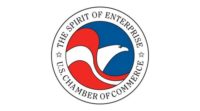SDM received the following time-sensitive call to action from Lou Fiore, chair of the Alarm Industry Communications Committee on Friday, Dec. 16 at 12:34PM CT.
Alarm professionals must call or email their senators within the next 36 hours to encourage the Senate to modify the House Payroll Tax Bill (H.R. 3630) and prohibit the funding of unverified alarm signals that go directly into 9-1-1 centers.
The U.S. House of Representatives has included in its so-called Payroll Tax Bill (H.R. 3630) a provision that would encourage the FCC to allow 9-1-1 centers to directly receive unverified alarm signals for emergency services.
This presents a grave threat to the alarm industry. Sending automatic unverified signals, as well as unverified signals from Personnel Emergency Response Systems (PERS), would overwhelm 9-1-1 centers with calls that do not require the dispatch of public safety responders.
The House passed the Payroll Tax Forgiveness Bill, which includes an extension of unemployment insurance and the “Doc Fix” -a cost-of-living update. Sometime in the next 48 to 72 hours, the Senate will take up H.R. 3630. The payroll tax, unemployment insurance and Doc Fix have high priority in the Senate, as they are considered to be must-pass legislation.
It is critical, therefore, that alarm professionals call or email their senators within the next 36 hours and urge them to change the provision that would allow automatic, unverified alarm signals to go directly to 9-1-1 centers. The message to senators is as follows:
“As a provider of monitoring services in your state for burglar, fire and Personnel Emergency Response Systems, I am concerned that the Next Generation 9-1-1 portion of H.R. 3630 would encourage the FCC to allow automatic unverified alarm signals, as well as unverified signals from Personnel Emergency Response Systems' used by seniors, to go directly into 9-1-1 centers.”
“As an industry, we receive more than 100 million alarm signals a year, of which more than 95 percent do not require the dispatch of emergency services. Allowing unverified alarm signals to go into 9-1-1 centers would cripple the emergency response system. Please tell the Senate leadership NOT to allow unverified alarm signals to go directly into 9-1-1 centers.”
The key Senate legislative assistants with whom we have met are listed below. You also can call your senator at dialing 202-224-3121 and asking to be connected to your senator.
Hap Rigby - Senator Demint - 202-224-1251 - Hap_rigby@commerce.senate.gov
Matthew Hussey - Senator Snowe - 202-224-5344 - Matthew_hussey@snowe.senate.gov
Derrick Brent - Senator Boxer - Derrick_brent@boxer.senate.gov
Neeta Bidwai - Senator Warner - 202-224-2023 - Neeta_bidwai@warner.senate.gov
David Quinalty - Senator Hutchison - 202-224-0411 - David_quinalty@commerce.senate.gov
Margaret McCarthy - Senator Klobuchar - 202-224-3244 - Margaret_mccarthy@klobuchar.senate.gov
Darren Achord - Senator Rubio - 202-224-3041 - Darren_achord@rubio.senate.gov
Andria Winters & Nicole Barrett- Sen. Kirk - 202-224-2854 - Andria_winters@kirk.senate.gov and Nicole_barrett@kirk.senate.gov
Mark Smith - Senator Cantwell - 202-224-3441 - Mark_smith@cantwell.senate.gov
Anthony Ching - Senator Inouye - 202-224-3934 - Anthony_ching@inouye.senate.gov
Greg Buzzard - Senator Rockefeller - 202-224-6472 - Greg_buzzard@rockefeller.senate.gov
For more information about this legislation, contact Lou Fiore at ltfiore@aol.com.
The AICC is composed of the Central Station Alarm Association (monitoring and installation companies), the Electronic Security Association (predominately installers), and the Security Industry Association (manufacturers of alarm equipment).





